Tools for Scaling Best Practices: Windows, Bridges and Roadmaps

Our last two articles (here and here) explored the scaling of Work-Study Practices (WSPs, a.k.a., deeper learning competencies) in New Hampshire, the growth of this education innovation in the state and the role of a statewide, nonprofit intermediary, the New Hampshire Learning Initiative (NHLI) as a scaling agent. There is another driver of scale observed… Read More ›
Transitioning and Sustaining Competency-Based Education During School Closures

This article looks at the remote learning experience of South Bronx Community Charter High School (SBC), a school launched in 2016 with a strong competency education approach. A mastery-based approach positioned them to make a smoother transition to remote learning. The article discusses several strategies they continued to rely on strong relationships with advisors and… Read More ›
Providence Students Use Data to Participate in System Change

Beyoncé and many others have said, “When life gives you lemons, make lemonade.” This is particularly true during the myriad crises presented by our current pandemic. But even before COVID-19, way back in the summer of 2019, it was all lemons for educators in Providence, RI. A blistering report from the Johns Hopkins Institute told… Read More ›
Policy Recommendations to Support Social, Emotional and Academic Development
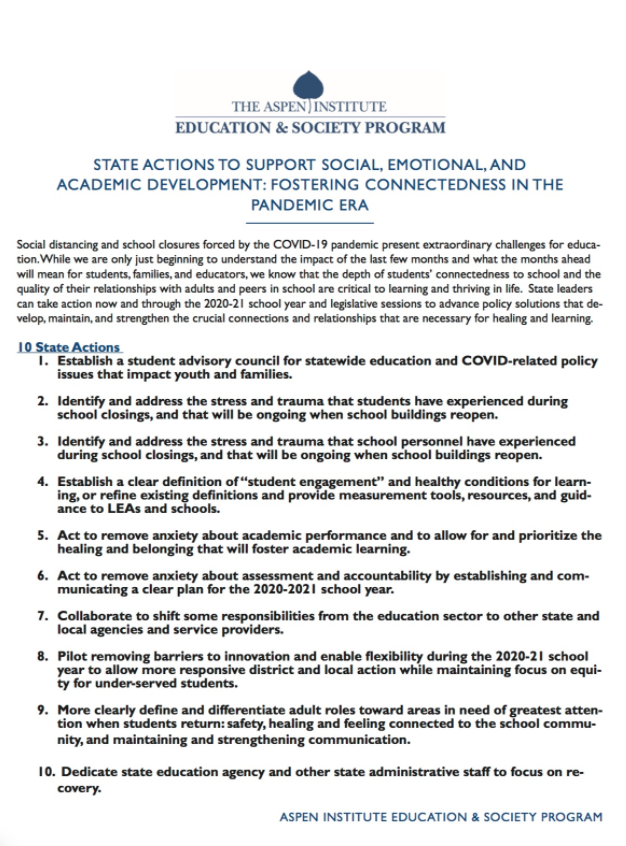
This report features policy recommendations to nurture students’ connections to school to support both well-being and academic outcomes. Due to the disruptions caused by the pandemic, the quality of students’ relationships with adults and peers and their sense of connection to school are vitally important during remote and in-person learning. The report asserts that relationships… Read More ›
Supporting Students to be Independent Learners: State and District Actions
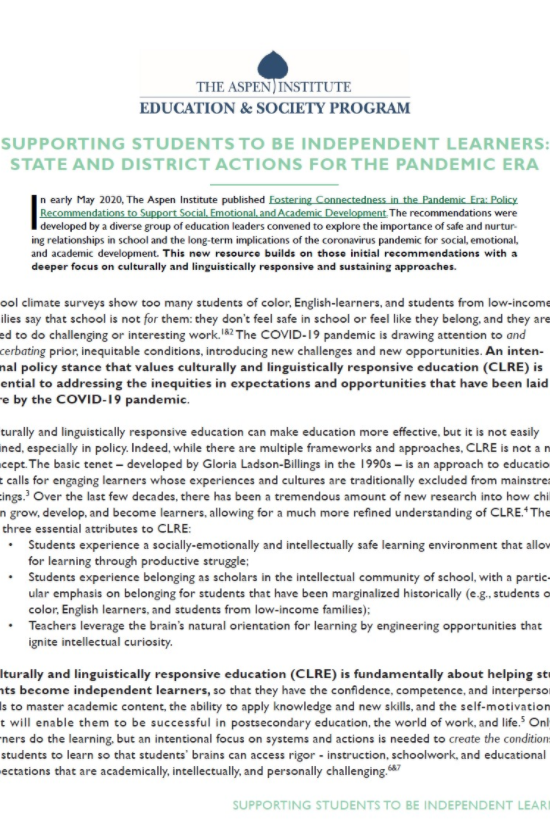
This report features actionable insights to help state policymakers encourage culturally and linguistically responsive education during the COVID-19 pandemic. The report asserts that culturally and linguistically responsive education helps students build a sense of connection to school and become independent learners. The skills that are hallmarks of independent learners – confidence, competence, and interpersonal skills… Read More ›
Why There’s A Push To Get Police Out Of Schools
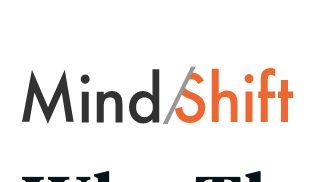
This article and accompanying podcast from MindShift explores the rationale for decreasing police in schools. This has long been a goal of the black lives matter. This article explains the call for decreasing police presence in schools. It suggests several student-centered alternatives to increase student safety including restorative justice programs, positive behavioral interventions and supports… Read More ›
The Sciences of Teaching
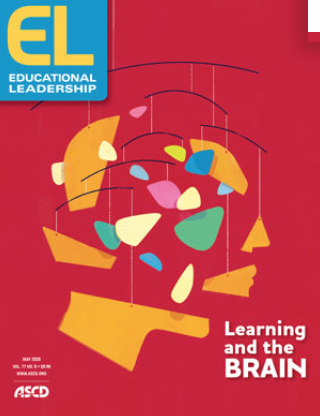
In this Educational Leadership article, the authors discuss how the fields of neuroscience and psychology come together to shed light on what is known about teaching and learning. They look at ways knowledge from both fields provides insight into four commonly discussed scientific findings about learning. They explore the importance of growth mindset, linking new… Read More ›
Learning in the Time of Corona: Fast Classes and Less Sleep
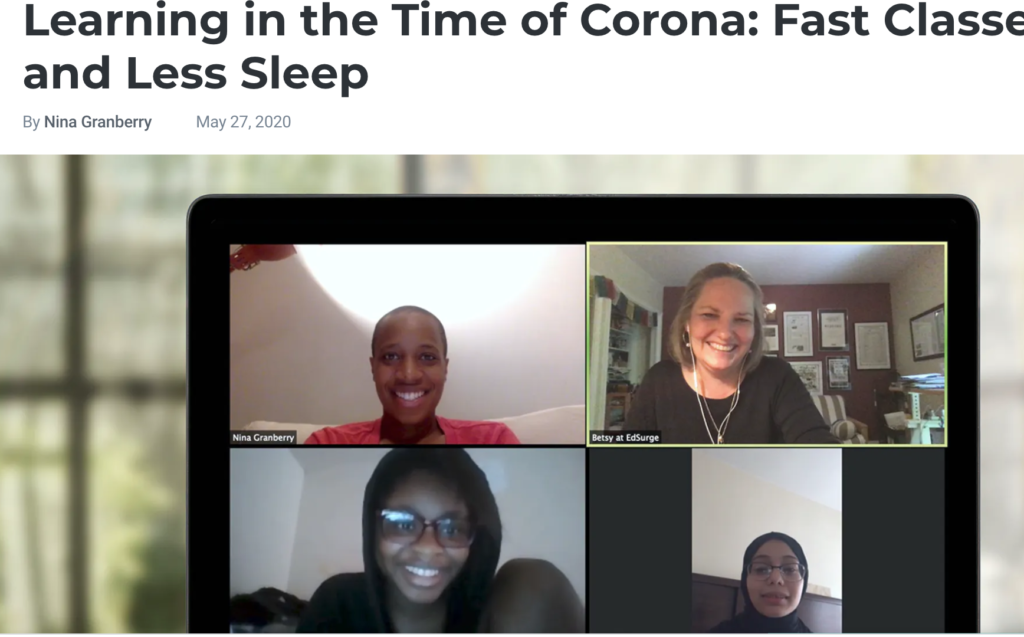
This article, written by a teacher at the Urban Assembly School for Math and Science for Young Women, an all-girls school serving grades 6 through 12 in downtown Brooklyn, N.Y., highlights student voices. The article features excerpts from interviews with students about their experiences with remote learning. The author hopes other educators can learn from… Read More ›
White Folks Series

This two part webinar series is focused on strategies for engaging in racial equity conversations and actionable next steps. It will be hosted in collaboration between Diversity Talks and a newly founded organization, PR(iSM) RESISTANCE COALITION which specializes in redesigning systems, structures and policies from a diverse, equitable and inclusive lens. The hosts hope to… Read More ›
Three Ways to Scale Student-Centered Reforms in Your System

Since 2014, New Hampshire educators can meet academic accountability requirements through a statewide Performance Assessment for Competency-based Education (PACE) system. Aimed at capturing a more authentic assessment of content knowledge, educators have developed and scored performance tasks with levels of reliability and validity comparable to state level standardized tests. As part of a William and… Read More ›
A Plan to Safely Reopen America’s Schools and Communities
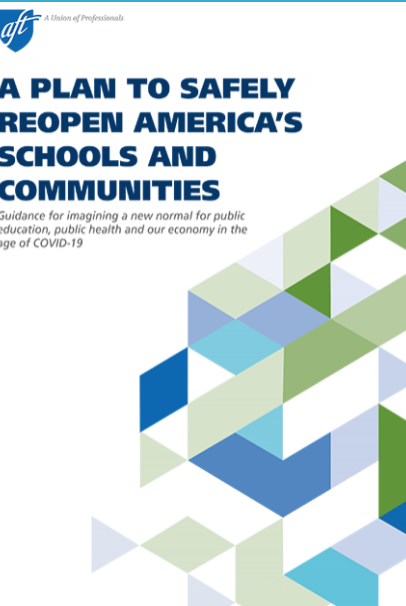
This detailed “Plan to Safely Reopen America’s Schools and Communities” was designed to help communities chart a path to safely and responsibly reopen school buildings and other institutions. It features five core pillars based on science as well as educator and healthcare expertise. The document shows how to effectively respond to the crisis, especially emphasizing… Read More ›
Horizons
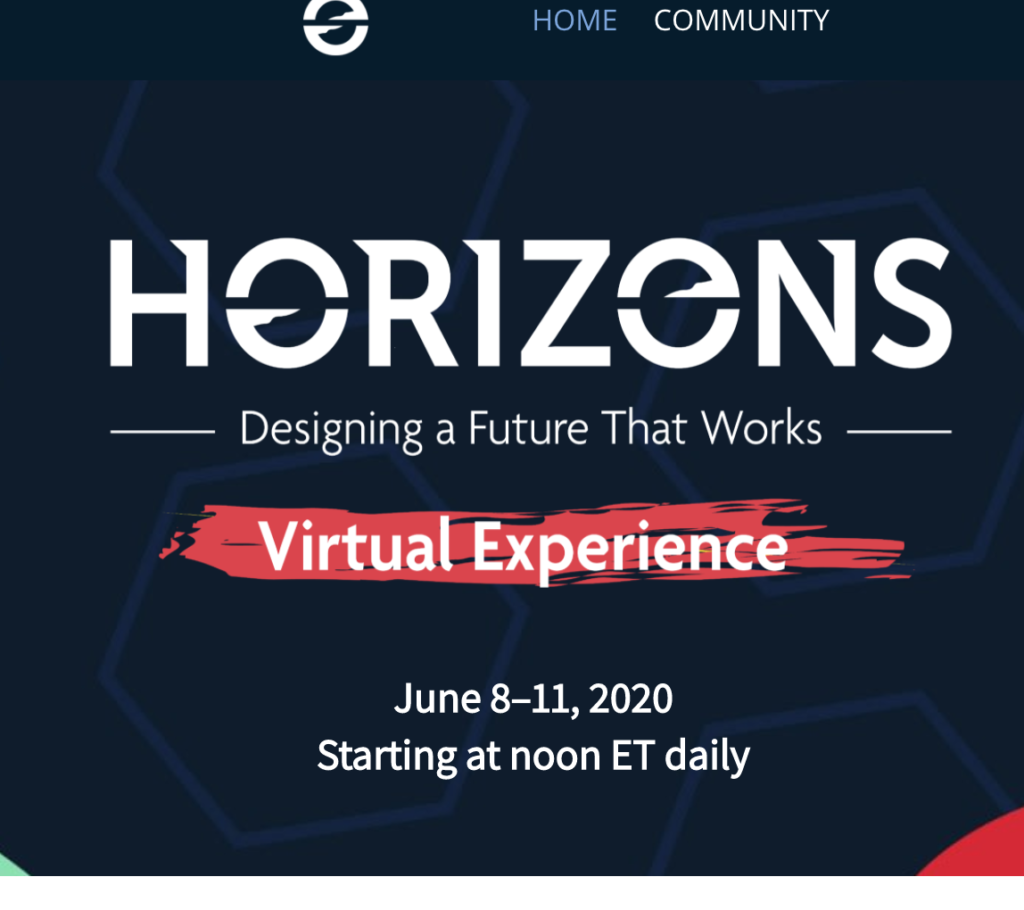
Hosted by Jobs for the Future, this 4-day virtual learning experience will focus on how to lay the foundation for an equitable economic recovery amid the COVID-19 pandemic. The interactive online experience will feature networking sessions, virtual chats and a design challenge. Industry leaders will also give presentations exploring the ways in which education and… Read More ›